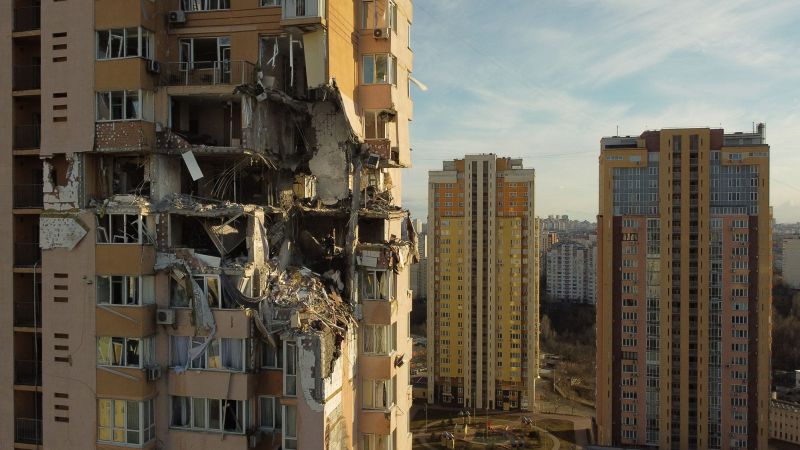CNN
—
It’s the evening of February 23, 2022. In Kyiv, the boss of a news site relaxes with a bath and candles. In Zaporizhzhia, a young woman goes to bed planning to celebrate her husband’s birthday in the morning. In Moscow, a journalist happens to postpone his travel plans to Kyiv.
Within hours, their lives are dramatically and radically transformed. The next day, Russian President Vladimir Putin launches his full-scale invasion of Ukraine.
In the space of a year, the war has claimed tens of thousands of lives and displaced millions more. It has unleashed unfathomable atrocities, decimated cities, driven a global food and energy crisis and tested the resolve of western alliances.
We asked seven people close to the conflict – from “fixers” in Ukraine, to commentators in Moscow – to reflect on the first anniversary of the invasion. The views expressed in this commentary are their own.
Opinion by Diliara Didenko
Diliara Didenko is a PhD candidate in sociology and a mother of two. She works in social media marketing.
Zaporizhzhia, February 23, 2022. I went to bed thinking that I would celebrate my husband’s birthday the next day. Our life was getting better. My husband was running his own business. Our daughter had started school and made friends there. We were lucky to have arranged support services and found a special needs nursery for our son. I finally had time to work. I felt happy.
Could I imagine that, 22 days later, I would be starting my life over in the Czech Republic, and my country would be set on fire?
Completely exhausted, crushed and scared, we had to brace ourselves and come to terms with our forced displacement. I will be forever grateful to all those who helped us come to Prague and adjust to a new life in a foreign land.
Thanks to the opportunities for Ukrainians provided by the Czech Republic, my husband got a job. I found special needs classes for my son. He now attends an adaptation group for Ukrainian children and has a learning support assistant. My daughter goes to a Czech school while studying in her Ukrainian school remotely.
We are trying to live in the here and now. But the truth is, we are heartbroken. While physically we are in Prague, our hearts have remained in Ukraine.
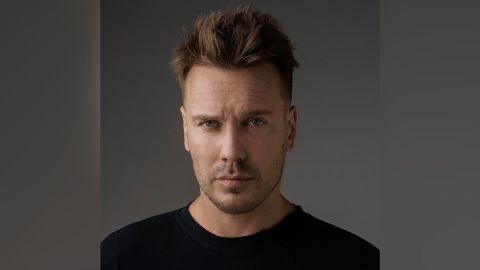
Opinion by Mikhail Zygar
Mikhail Zygar is a journalist and former editor in chief of the independent TV news channel Dozhd. He is the author of “All the Kremlin’s Men: Inside the Court of Vladimir Putin” and upcoming book “War and Punishment. Putin, Zelensky, and the Path to Russia’s Invasion of Ukraine.”
On February 24, 2022, I was supposed to be in Kyiv. But a few days before that, my husband broke his shoulder and we had to stay in Moscow. At 9:00 a.m. that day he had surgery.
That morning we woke up to learn that the invasion started. I wrote an open letter denouncing the war, which was co-signed by 12 Russian writers, directors and cultural figures. Soon it was published, and tens of thousands of Russian citizens added their signatures.
On the third day we, my husband and I, left Russia. I felt that it was some kind of moral obligation. I could no longer stay on the territory of the state that has become a fascist one.
We moved to Berlin. My husband went to work as a volunteer at the refugee camp next to the main railway station, where thousands of Ukrainians had been arriving every day. And I started writing a new book. It starts like this:
“This book is a confession. I am guilty for not reading the signs much earlier. I too am responsible for Russia’s war against Ukraine. As are my contemporaries and our forebears. Regrettably, Russian culture is also to blame for making all these horrors possible.”
I know that Russian people are infected with imperialism. We failed to spot just how deadly the very idea of Russia as a “great empire” was – now we have to come a long way, healing our nation from that disease.

Opinion by Michael Bociurkiw
Michael Bociurkiw is a global affairs analyst who in summer relocated from Canada to Ukraine. He is a senior fellow at the Atlantic Council and a former spokesperson for the Organization for Security and Cooperation in Europe.
As I write, Russia has just fired dozens of Kalibr missiles towards several cities in Ukraine, including my adopted city of Odesa. Air raid sirens blare as we bolt for shelter into enclosed hallways. My landlady brings me a pot of borscht to help create a sense of normalcy.
If anything, for me, the son of Ukrainian immigrants in Canada, this has been a war of history repeating itself – from the forced deportation of upwards of 2.5 million Ukrainians, including 38,000 children, to the stealing of Ukrainian grain to the wanton destruction of Ukrainians museums, libraries, churches and monuments.
Time and again since the Russian invasion started, I’m haunted by the darkness in my father’s eyes during the re-telling of chilling dinnertime stories of relatives shipped off to the Soviet gulag, never to return. Stories of millions of Ukrainians who starved to death in Stalin’s manmade famine of 1932-33.
What’s changed since Russian missiles first began falling on February 24, 2022? The fear felt by Ukrainians has been replaced with anger as they stand up to barrages of rockets and drones.
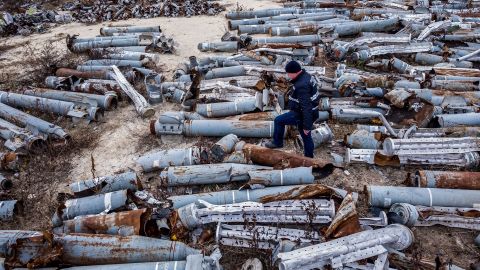
Whether it’s going through with a wedding in the aftermath of a rocket attack, pitching in to make Molotov cocktails, shifting classes to a Kyiv subway station as missiles fly or keeping a family business open against all odds, one thing Putin’s invasion has done is galvanize the Ukrainian people like never before.
It’s an unmistakable, irrepressible resilience that convinces me the arc of history will go anything but Putin’s way.
Opinion by Sasha Dovzhyk
Sasha Dovzhyk is a special projects curator at the Ukrainian Institute London and associate lecturer in Ukrainian at the School of Slavonic and East-European Studies, University College London. She divides her time between London and Ukraine where she works as a “fixer“– a translator and producer for foreign journalists.
A year into the full-scale invasion, my passport is a novel in stamps. My life is split between London, where I teach Ukrainian literature, and Ukraine, where I get my lessons in courage.
My former classmates from Zaporizhzhia whom, based on our teenage habits, I expected to perish from addictions a long time ago, have volunteered to fight. My hairdresser, whom I expected to remain a sweet summer child, turned out to have fled on foot from the Russia-occupied town of Bucha through the forest with her mother, grandmother and five dogs.
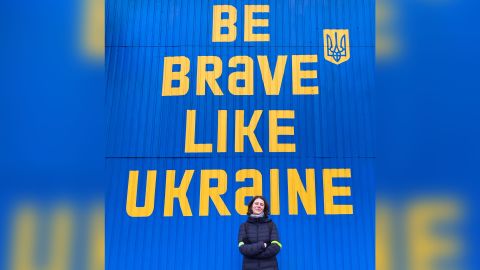
My capital, which the Kremlin and the West expected to fall in three days, has withstood 12 months of Russia’s terrorist bombings and energy blackouts. These dark winter nights, one sees so many stars over Kyiv which the Russians have only managed to bring closer to eternity.
Ukrainians have learned that they are stronger than was expected of them. Have those who have underestimated them learned their lessons? Military aid has been enough for Ukraine to survive but not to crush the enemy.
For the outside world, the idea of a defeated Russia is still scarier than the sight of Ukraine half-ruined. Just like a year ago, Ukraine is calling on the rest of the world to find courage.
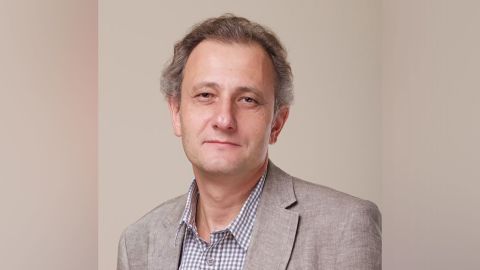
Opinion by Andrei Kolesnikov
Andrei Kolesnikov is a senior fellow at the Carnegie Endowment for International Peace. He is the author of several books on the political and social history of Russia, including “Five Five-Year Liberal Reforms.” Origins of Russian Modernization and Egor Gaidar’s Legacy.”
It seems that since February 2022 we have experienced several eras. The first was euphoric, when Putin suddenly, after a significant time of stagnant ratings, received more than 80% approval from the population.
It seemed to many at the time that the campaign would be short, like the annexation of Crimea in 2014.
Then, beginning in late spring, came a period of apathy, when people tried not to pay attention to what was being done in Ukraine.
And in the fall, public demobilization was replaced by mobilization – Putin demanded that citizens share responsibility for the war with him with their bodies. This provoked unprecedented anxiety, but instead of serious protests, the bulk of the population again preferred adaptation.
Among Putin’s supporters there is also a group of aggressive conformists who have become supporters of total war.
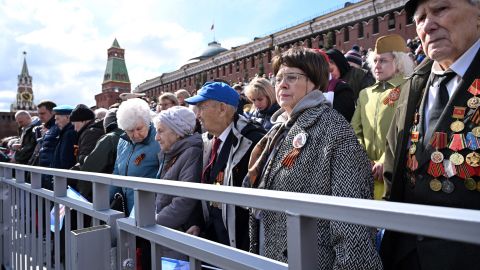
But everyone experienced the shock of war differently. For millions of people in Russia, what happened was an absolute catastrophe: Putin not only destroyed all the achievements of previous life, he aborted the country’s history.
By aborting the past, he canceled the future. Those who were disoriented, preferred to support Putin: it is easier to live this way when your superiors decide everything for you, and you take for granted everything you are told by propaganda.
For me personally and my family, what happened was a catastrophe to which it is impossible to adapt. As an active commentator on the events, I was labeled by the authorities as a “foreign agent,” which increased personal risk and reinforced the impression of living in an Orwellian anti-utopia.
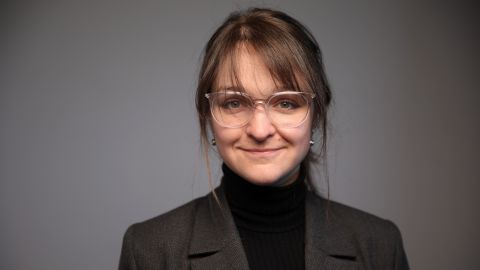
Opinion by Daryna Shevchenko
Daryna Shevchenko is chief executive officer of The Kyiv Independent, an English-language news site in Ukraine.
On the evening of February 23 I washed my dog, cleaned the house, took a bath and lit candles. I have a cozy, one-bedroom apartment in a northern district of Kyiv. I loved taking care of it. I loved the life I had. All of it – the small routines and the struggles. That night was the last time my life mattered.
The next morning my phone was buzzing from all the messages and missed calls. A red headline in all caps on the Kyiv Independent website read: “PUTIN DECLARES WAR ON UKRAINE.”
I remember talking to colleagues, trying to assemble and coordinate a small army of volunteers to strengthen the newsroom. And calling my parents to organize buying supplies.
We’d been expecting a battle for quite some time and knew it would be an uphill one. I had a solid plan, and it was working.
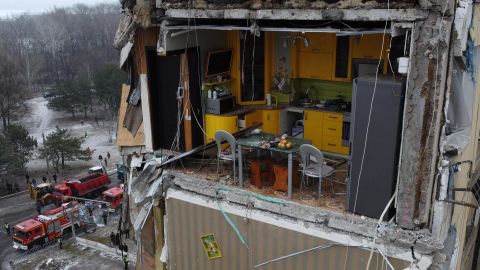
The life I knew started falling apart soon after, starting with the small things. It no longer mattered what cup I used to drink my morning tea, or how I dressed, or whether or not I took a shower. Life itself no longer mattered, only the battle did.
Just a few weeks into the full-scale invasion it was already hard to remember the struggles, sorrows and joyful moments of the pre-war era. I would remember being upset about my boyfriend, but I could no longer relate. My life didn’t change on February 24, it was stolen from me on that day.
And besides the obvious battles, there was another one to fight – trying to claim my life back. The life Russia stole from me and millions of Ukrainians.
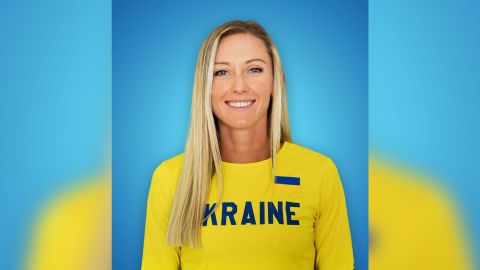
Opinion by Anna Ryzhykova
Anna Ryzhykova is a Ukrainian track and field athlete, Olympic bronze medalist and multiple European Championships medalist.
By March, my initial shock and fear of the war turned into a desire to act through sports. Athletes could fight against Russian propaganda in the best way. We just had to tell the truth about the war and Ukrainians – how strong, kind and brave we are. How we have united to defend our country.
I was no longer concerned with my personal ambitions. Only the common goal was crucial – to raise our flag and show that we are fighting even under these circumstances.
I couldn’t enjoy my victories on the track. They were only possible because so many defenders had laid down their lives. But I got messages from soldiers on the frontline. They were so happy to follow our achievements, and it was my primary motivation to continue my career.
This whole year has been full of tears and worries. I read the news about people close to me killed by Russians – a teammate, the director of a sports school, or a friend’s parents.
After each attack, I call my family and friends to ensure they are alive. The seconds of waiting for their voices are excruciating.
Life values have changed. Like never before, I enjoy every opportunity to see or talk to relatives and friends. And like other Ukrainians, I believe in our victory and that all of us will return to our beloved country. But we need the world’s help.

